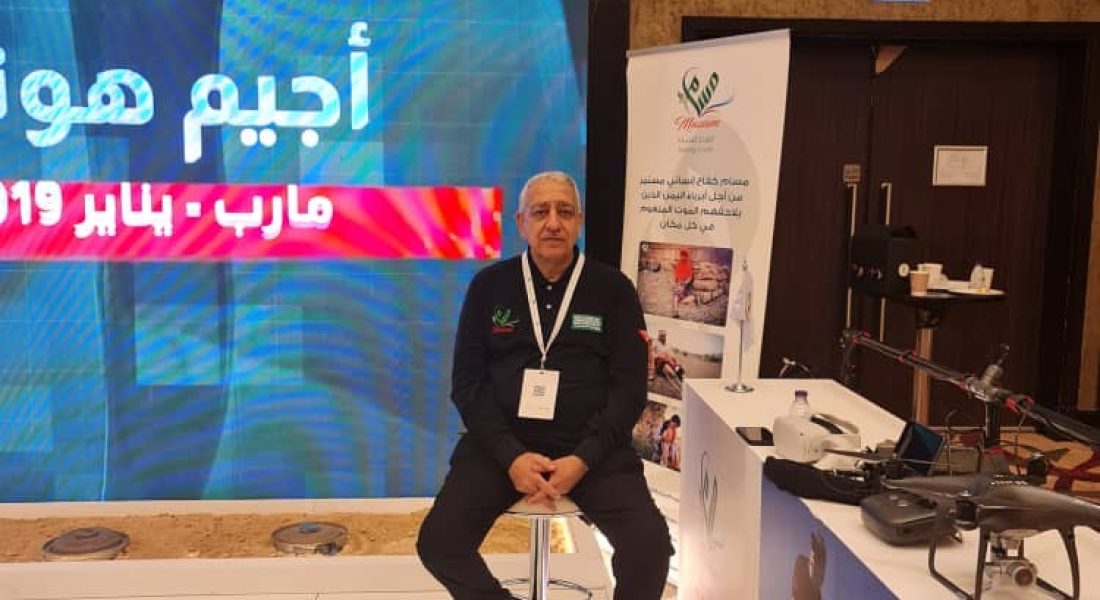The third edition of the Riyadh International Humanitarian Forum (RIHF3) was launched today (Monday February 20), and it will continue for two days, in partnership with the United Nations.
The RIHF is based on the commitment of the Kingdom of Saudi Arabia to its humanitarian and developmental role and under the patronage of the Custodian of the Two Holy Mosques King Salman bin Abdulaziz Al Saud, and on his behalf, Prince Faisal bin Bandar bin Abdulaziz, Governor of Riyadh Region.
The forum, organised by King Salman Humanitarian Aid and Relief Centre, aims at enhancing dialogue and communication channels among leaders, donors, workers and researchers, exchanging experiences and ideas, as well as discussing developments in humanitarian and relief issues in various countries around the world.
RIHF is also meant to activate the relational approach between humanitarian work, development and peace to ensure the achievement of sustainability and comprehensive development, and the adaptation of technology and digital transformation.
The forum also aims to:
– present the most prominent opportunities and challenges in humanitarian work with the aim of developing innovative, sustainable and effective solutions for humanitarian response,
– accelerate the achievement of the Sustainable Development Goals (SDGs) in the humanitarian context
– anticipate and develop humanitarian work through scientific research and data quality governance, including studies founded on evidence-based practices
– encourage and involve young people in volunteer work and contributing to humanitarian work.
The theme of the forum this year is “Evolving Humanitarian Needs: development and response” and includes discussions around achieving SDGs through the Humanitarian, Development and Peace Nexus (HDPN), strengthening local community Resilience, challenges in humanitarian work, and data collection and analysis to support humanitarian work.
Over the next two days, a number of dignitaries and leaders are expected to participate.
These include His Highness Prince Faisal bin Farhan bin Abdullah; the Minister of Foreign Affairs, advisor at the Royal Court and General Supervisor of King Salman Humanitarian Aid and Relief Center (KSrelief) Dr. Abdullah Bin Abdulaziz Al Rabeeah , and Martin Griffiths, the under-Secretary-General for Humanitarian Affairs and Emergency Relief Coordinator, Office for the Coordination of Humanitarian Affairs (OCHA) and Janez Lenarčič, the European Commissioner for Crisis Management, the Minister of Industry and Mineral Resources, His Excellency Mr. Bandar Ibrahim Alkhorayef, and finally his Excellency Ahmed Bin Suleiman Bin Abdul Aziz Al-Rajhi, the minister of Labor and Social Development.
Project Masam participates at RIHF3
Project Masam, funded through KSRelief to clear Yemen of landmines planted in vast areas controlled by the Houthi militia is another participant at the forum.
In this regard, Project Masam managing director Ousama Algosaibi said that in continuation of the efforts of the Kingdom of Saudi Arabia and by virtue of its global and effective position in humanitarian work, Project Masam was launched in mid-2018 to save the Yemeni people from explosives and restore safe life to Yemeni land that is heavily contaminated by indiscriminate, camouflaged and modified mines.
Speaking to Al Riyadh, Algosaibi explained that Masam teams succeeded in removing 386,282 landmines, unexploded ordnance and explosive devices, bringing the total cleared land to 44,122,922 km between mid-2018 and February 10.
Algosaibi added that Masam teams are also working on training Yemeni personnel on demining, and setting up a mechanism that help Yemenis acquire sustainable mine-clearing experience, highlighting that Masam teams consist of 525 employees, including 32 teams working in liberated areas throughout Yemen. They have trained, equipped and supervised 450 Yemeni nationals so far.
Algosaibi explained that demining work in Yemen faces many challenges, the most prominent of which is the lack of maps of these mine fields, adding that Project Masam was not handed any maps and thus depends on the survey teams to map out those fields.
The managing director also pointed out that the Houthi militia has developed homemade mines, as 85 per cent of the mines removed by Masam teams are homemade.
The militia also camouflaged landmines in the form of stones, iron concrete, plastic cans, booby-trapped rocks, and palm trunks, placing them on civilians’ farms, or installing explosive devices in car tires.
Algosaibi pointed out that Project Masam through its media office effectively educated civilians and foreigners about the dangers of mines, shedding light on the human tragedies resulting from them, noting that all Masam teams, deployed in more than eight Yemeni governorates, carry out awareness-raising campaigns in all areas where they are located.
Algosaibi said that planting mines indiscriminately in Yemeni lands caused paralysis in liberated areas, where civilians returned to after being displaced.
With this in mind, Project Masam teams focus on clear vital localities from the danger of landmines, including high-impact civilians areas and sources of water supply, hospitals, health centres and places of worship.
Algosaibi claimed that the Houthi militia bet on destroying the educational process in Yemen, as schools also did not escape mine-laying operations.
Landmines contaminated many schools, with the alleged aim of destroying the generations of today and tomorrow in Yemen – which he believes would create a fertile environment for spreading ignorance and illiteracy.
Therefore, Project Masam has paid great attention to clearing many Yemeni schools of mines as it believes in the right of the Yemenis to a safe life free of mines – at the core of this conviction is the belief that a safe life can only be possible and flourish with a safe and secure educational process.
Algosaibi indicated that Project Masam teams quickly and accurately identify sites to remove landmines, unexploded ordnance and explosive devices in all liberated areas, confirming mined areas through the conduct of technical surveys, followed by manual clearance operations in all confirmed sites in line with international demining standards.
So far, Masam has worked in 11 regions: Sana’a, Hodeidah, Aden, Al-Bayda, Al-Jawf, Lahij, Marib, Shabwah, Taiz, Al-Dhalea and Saada.

